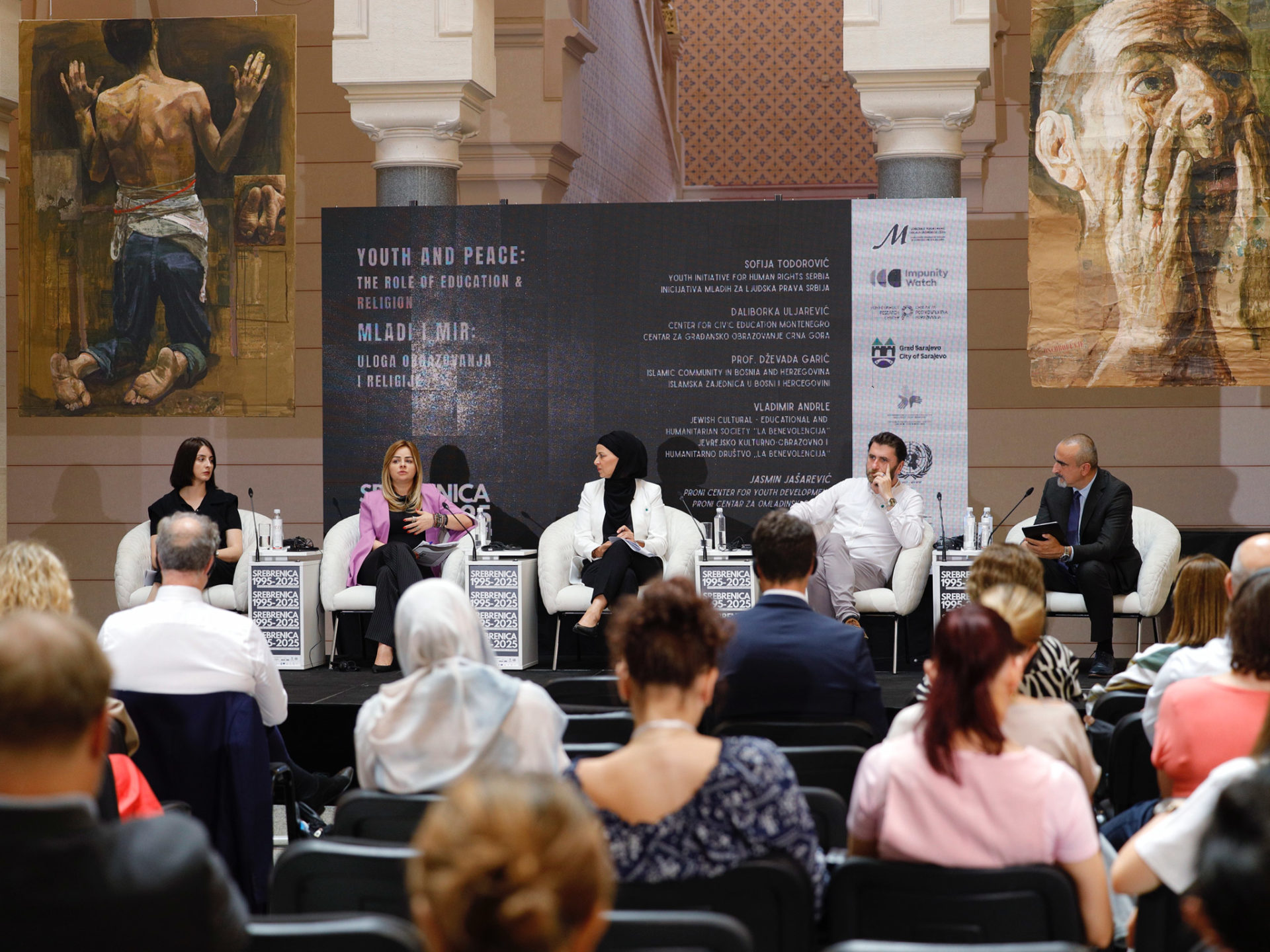
Young people in Bosnia and Herzegovina (BiH) and across the region play a key role in building sustainable peace.
Through education and interreligious dialogue, it becomes possible to work toward confronting the past, strengthening community, and shattering prejudices and stereotypes. These practices, which experts consider the most effective and sustainable way to a better future, were the focus of the international conference “Srebrenica 1995-2025: Dealing with the Past,” held on July 8th at Sarajevo City Hall.
“Srebrenica 1995-2025: Dealing with the Past” was organized by the Post-Conflict Research Center, the City of Sarajevo, Sarajevo’s International Criminal Tribunal for the former Yugoslavia (ICTY) Center, the Movement of the Mothers of the Srebrenica and Žepa Enclaves, the International Residual Mechanism for Criminal Tribunals (IRMCT), the Western Balkans Coalition for Genocide and Mass Atrocity Crimes Prevention, and the Dutch organization Impunity Watch.
The panel “Youth and Peace: The Role of Education and Religion,” was moderated by Jasmin Jašarević, the founder and general manager of the PRONI Center for Youth Development. Civil society and religious community representatives from BiH and the wider region emphasized that a youth culture of silence and passivity hinders the path to a better future. They also pointed out that political interference prevents reforms to educational programs related to dealing with the past.
Coexistence and Interfaith Dialogue
Professor Dževada Garić, head of the Office for International Cooperation and the Bosniak Diaspora in the Islamic Community of BiH, began by sharing a quote from a Tuzla imam: “After the Srebrenica genocide, for us to be silent would be complicity. As faith communities, we must not only pray for peace—we must educate for it.”
Professor Garić explained that the connection between religion, peace, and conflict is complex and far from black and white. Religion, in and of itself, is inherently neither good nor bad for peace, but its influence, as she pointed out, is undeniable.
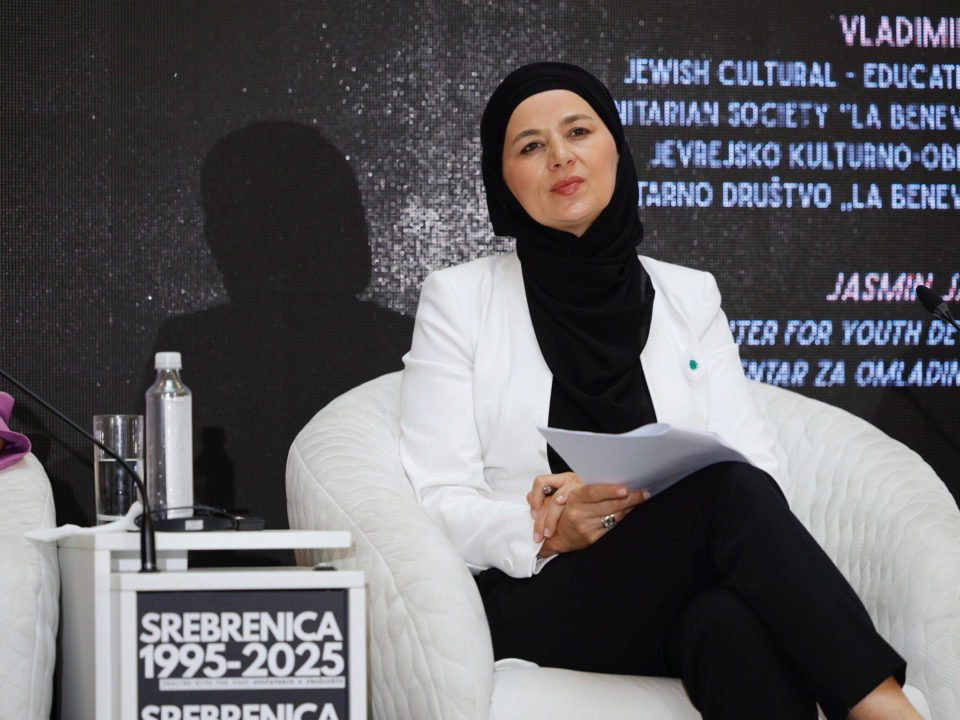
“Religion can be a powerful driver of violent conflict and mobilizing communities to go to war, and we have witnessed this over the last three decades in Bosnia-Herzegovina. But religious peacebuilding still lacks two important actors: women and youth. We need many more projects, and an even larger number of projects in this regard,” said Garić.
Peace through religion, as she explained, implies grounding ourselves only in our own religious traditions. This is not bad, per se, but we risk excluding other faith traditions. And if we strive to build peace without religion, we are overlooking an enormous potential resource of peacebuilding, which lies in religious actors, religious values, and beliefs that foster peace.
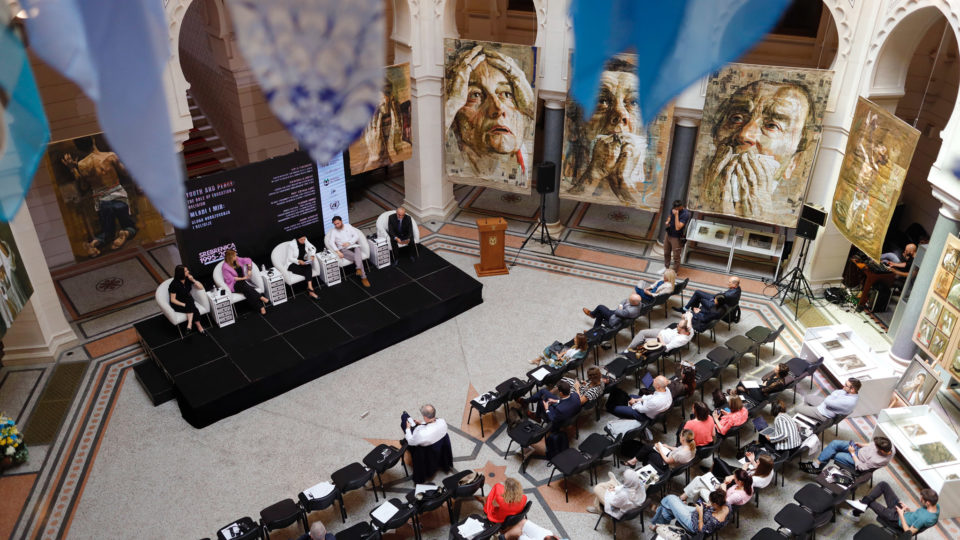
The third approach, characterized as peace with religion, prioritizes coexistence and interfaith dialogue, which Garić describes as “the most desirable and sustainable path.”
“This approach requires collaboration across the religious lines. It brings religious leaders, women, youth, minorities, and majority communities to the table as equal partners. It is people who engage in dialogue, not religious communities, not religious traditions. Those who preach and those who practice dialogue come together to seek solutions and to live together despite the conflict, despite differences, and despite the burdens of the past,” said Professor Garić.
Vladimir Andrle, the president of the Jewish cultural-educational and humanitarian society La Benevolencija, reflected that the role of young people is not merely to be present, but to be empowered to change the world and do much more than older generations. He highlighted the project “Anti-Semitism, Islamophobia, and Xenophobia,” which La Benevolencija conducted in the public schools to openly confront prejudice.
“We all have prejudices and stereotypes about certain people. We must not allow ourselves not to fight against them. We must understand that stereotypes and prejudices are an integral part of our mental life, but they lead to generalization, which can lead society in the wrong direction,” Andrle said.
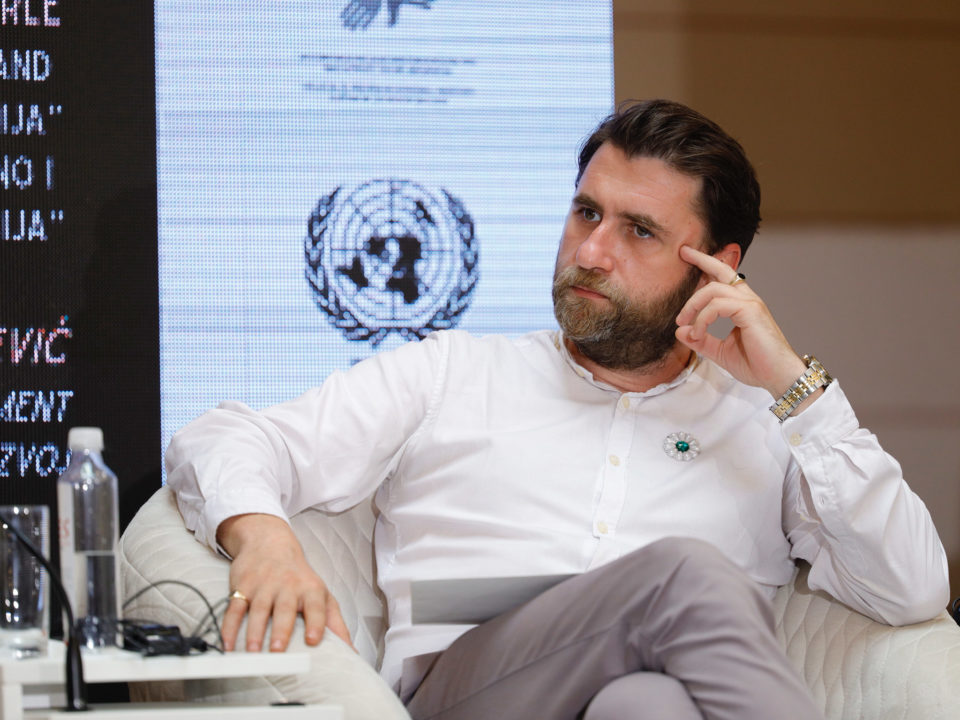
He acknowledged that changing long-established social norms is a long process. However, it is important to take the first steps, whereafter others will take over in building a society based on democratic and European foundations.
“We have to understand that we live in a climate heavily polluted by nationalism, which has been going on for the last 200 years, not only because of the aggression against BiH in the 1990s. It’s ‘in our DNA,’ and we have normalized discrimination and homogenization of communities over generations,” Andrle said.
The Need for a Regional Approach
Sofija Todorović, the executive director of the Youth Initiative for Human Rights in Serbia, explained why we should be even more concerned about peace in a society where people and officials do not want to admit mistakes: “This is where the space begins for young people, those who step forward and make a difference.”
Todorović noted that since 2003, their regional organization has been arguing that human rights and democracy cannot progress without a regional approach.
“You can ignore the past, but it always catches up with you. That’s why we do what we do—because important issues cannot be resolved without a regional prism,” she added.
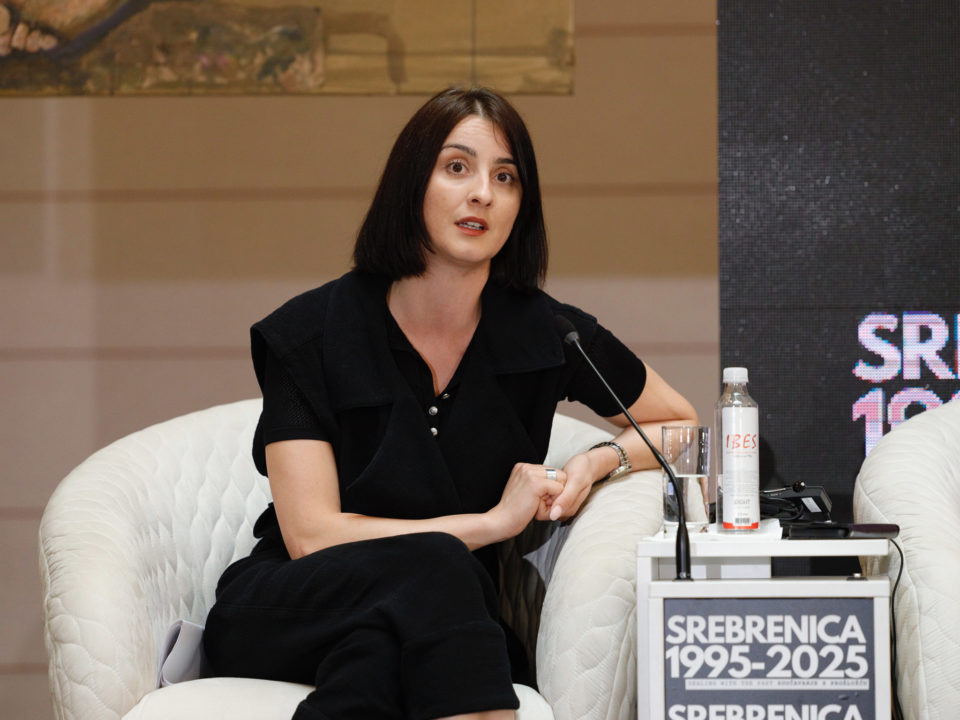
She also discussed misinformation in Serbia surrounding the adoption of the UN Resolution on the Srebrenica genocide. The government’s manipulations were rejected by young people, who used social media campaigns to explain to their peers why the Resolution was important.
Daliborka Uljarević, executive director of the Center for Civic Education in Montenegro, explained that 30 years after the genocide in Srebrenica, 83.4 percent of Montenegrin citizens know what happened there, but only 65 percent believe it was genocide.
Uljarević identified inadequate educational policies as the main problem. Revisionism reveals the lack of conscientious awareness among decision makers that the education system should be based on scientific standards, not political interests.
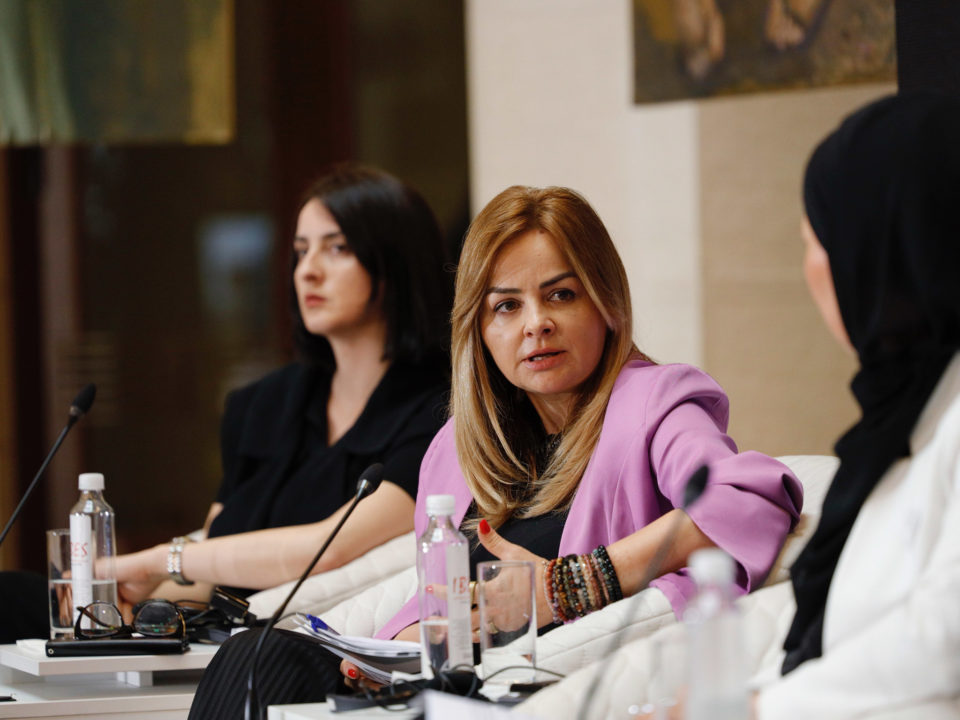
Only through sincere dialogue, education, and regional cooperation, and only with the active involvement of youth and religious communities, will it be possible to build lasting peace and overcome the divisions of the past.
_______________
The international conference “Srebrenica 1995–2025: Dealing with the Past” was held with the support of the National Endowment for Democracy (NED), the Rockefeller Brothers Fund, the Sigrid Rausing Trust, the United Nations in BiH, BH Telecom, the Public Enterprise Vijećnica, the organization Pro Peace, the regional project “EU Support to Confidence Building in the Western Balkans,” and the OSCE Mission to Bosnia and Herzegovina.






